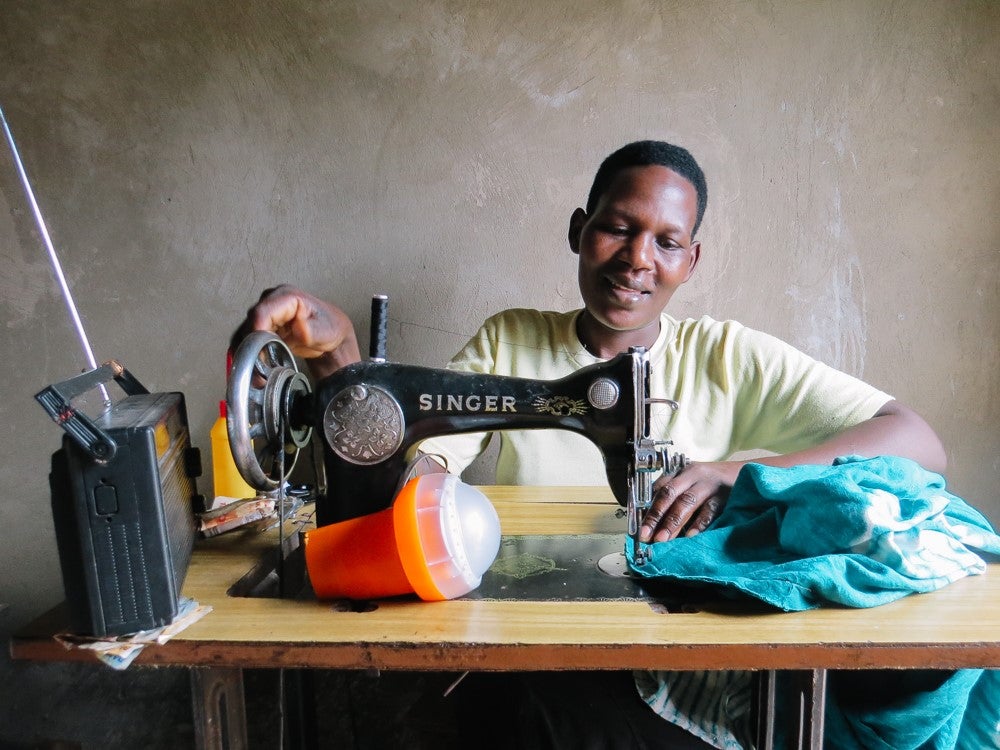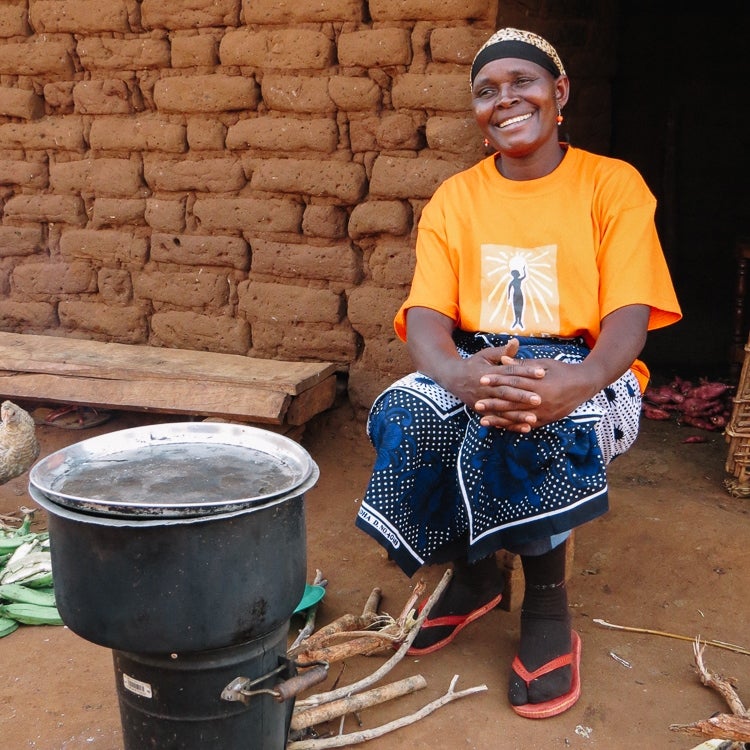Also available in: Arabic | Spanish

This number cannot be emphasized enough – more than 1 billion people around the world live without access to electricity, and 2.9 billion still cook with polluting, harmful fuel like firewood and dung.
As we celebrate Earth Day, we're looking at the ways to bring energy access to those communities and transform lives, and at the same time, protect our planet’s resources. How can we make sure that the right progress for communities is the right progress for the planet?
The good news is that the world is constantly coming up with new technology to address this challenge. We have portable, phone-charging solar lamps and energy efficient cookstoves that are affordable and practical for communities living off-the-grid. The challenge now is how to make sure the right technologies are available in affordable and sustainable ways to the communities that need them most.
Solar Sister is a social enterprise that recruits, trains, and supports African women launch clean-energy businesses in their communities, selling lights and cookstoves to their neighbors. We are organized around the principle that women must be intentionally included in discussions around energy.
Why?
Because women are the ones most affected by a lack of access to energy: in the overwhelming majority of instances, they gather fuel for stoves, cook in smoky kitchens, and walk miles to fill a can with kerosene. Often, they are also in charge of the day-to-day energy costs in their households and have the motivation, insight, and community connections needed to make sure energy access leads to a better community for all. What we’ve seen in the field, time and again, is that women’s voices and leadership are essential to the movement for equitable, clean energy access.
Natalia’s and Wamayo’s stories help underline that reality.

“They couldn’t study confidently. When we used kerosene they started coughing and choking from the smoke,” Natalia said.
That’s when she decided to buy battery-powered flashlights as an alternative, but quickly got frustrated when they broke and couldn’t be replaced. Then, a Solar Sister entrepreneur, Rose, introduced a reliable, safe solar lantern with a two-year warranty and a receipt to Natalia. That gave her the option of replacing it without spending more money. Plus, Natalia trusted Rose, who had been a friend and neighbor for many years.
Natalia bought one lantern to test it out, wanting to make sure the technology lived up to Rosa’s claim. She saved money from selling her vegetable crop and working as a tailor to buy two more lanterns, one at a time. It worked. Her children’s grades improved quickly and even better – they don’t cough as much anymore.
And then there is Wamayo, who can’t help smiling when she places her solar lantern in front of her sewing machine to demonstrate how she uses it late into the night. The lantern, purchased from a Solar Sister entrepreneur in Sango Bay, Uganda, has become an integral part of her tailoring business. Wamayo put away savings for a whole year to buy it. Now that she doesn’t spend 700 shillings per day to buy kerosene, her savings, combined with more income from extended work hours, means she has enough money to build a new house for her family.
Then there are the entrepreneurs themselves. Moshi sold more than 250 solar lanterns and clean cookstoves in her first year as a Solar Sister entrepreneur. When Moshi learned of Solar Sister and the opportunity to get electricity for herself and her community, which is off Tanzania’s electricity grid, she knew she wanted to be an entrepreneur and do her part to end energy poverty in her village. But she soon realized it was too big a task for one woman to take on.
So she convinced three more to join her.
“We are far from the (end of the) road... We thought, let us take it upon ourselves to get access to clean energy,” Moshi said.

Case studies and images provided by Lindsey Allen & Serena Chan, “Solar Sister Social Impact Report,” Miller Center for Social Entrepreneurship, Santa Clara University.


Join the Conversation